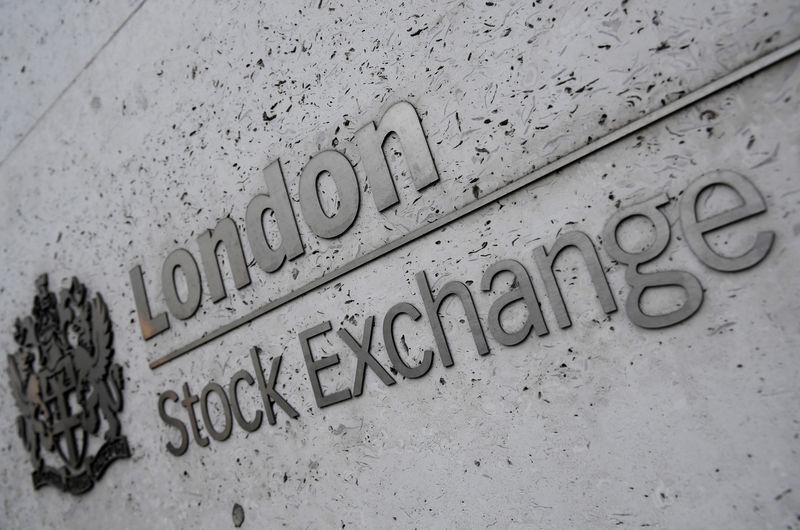By Sujata Rao and Tom Wilson
LONDON (Reuters) - European shares ticked up on Wednesday, shrugging off mounting concerns over world growth amid optimism that British lawmakers were set to rule out a no-deal Brexit - hopes that also helped the British pound rally by half a percentage point.
Britain's parliament is due to vote at 1900 GMT on whether the country should leave the EU on March 29 without a deal. It is widely expected to reject what would be an economically disruptive move, increasing the possibility of a delay in Brexit.
Bucking a somber mood in Asia, the pan-European benchmark gained 0.3 percent, with British, German and French bourses all rising. Wall Street was also set to open higher, futures show.
Earlier in the day, MSCI's Asia-Pacific equity index had lost 0.3 percent as fresh data reinforced a picture of a slowing world economy.
Japan's machinery orders fell in January at the fastest pace in four months, pushing the Nikkei down more than 1 percent.
Australia also continued its run of weak numbers, as an index of consumer sentiment slipped in March. U.S. monthly inflation rose, according to Tuesday data, but the gain was the smallest since September 2016.
That has compounded growing concerns over U.S.-China trade talks, with U.S. Trade Representative Robert Lighthizer saying it was unclear whether gaps between the two sides could be closed.
"Markets are still hopeful for a U.S.-China trade deal -- my concern is that this is not necessarily going to ride to the rescue of the weak economy ... ," said Steve Barrow, G10 strategist at Standard Bank. "That means riskier financial assets like equities are going to struggle from here."
The jitters have kept MSCI's world index off the 4 1/2-month highs it touched when Washington and Beijing appeared close to a trade agreement. The index has failed to make headway in March after two months of gains.
Britain's political chaos has also weighed on wider sentiment after parliament rejected on Tuesday for a second time Prime Minister Theresa May's Brexit deal.
The pound rose on Wednesday ahead of lawmakers' expected rejection of the no-deal Brexit option, even though that vote will lack legal force.
Sterling touched as high as $1.3290, up from lows of $1.2945. By late morning, it was trading 0.7 percent higher at $1.3150. UK bonds nudged lower.
Still, UBS analysts said that even if lawmakers rejected no-deal Brexit, the eventual outcome was still unclear. It advised clients to "remain cautious and avoid chasing short-term rallies in sterling or increasing exposure to UK equities".
NOSEDIVE
The other saga convulsing world markets this week has been Boeing's shares, as more and more countries ground its 737 MAX 8 planes after Sunday's crash in Ethiopia, the model's second fatal recent crash in les than six months.
Boeing's Frankfurt-listed shares lost as much as 2 percent to trade at six-week lows. A 6 percent fall in New York on Tuesday pushed the Dow down 0.4 percent.
Expectations that the Federal Reserve will remain patient on rates and may sound more dovish at next week's meeting had taken U.S. 10-year bond yields to 10-week lows at 2.596 percent on Tuesday, and pushed the dollar lower for a fourth straight day against a basket of currencies.
Yields on 10-year German bonds, viewed as one of the safest assets in the world, were a touch higher but within sight of more than two-year lows hit last week.
The Australian dollars slid 0.5 percent, whacked by Australia's weak consumer confidence figures. That dragged the New Zealand dollar down, too.
The euro was flat against the dollar around $1.129, up from the 20-month lows of $1.1174 it hit after the European Central Bank pushed back its rate-rise schedule and announced a cheap-loans program for banks.
On commodity markets, the dip in the dollar helped gold hit its highest in two weeks at almost $1,307 per ounce.

Brent crude oil futures edged up around 0.3 percent to $66.89 a barrel, buoyed by an official forecast showing slower-than-expected U.S. production, and as U.S. sanctions stall exports from Venezuela.